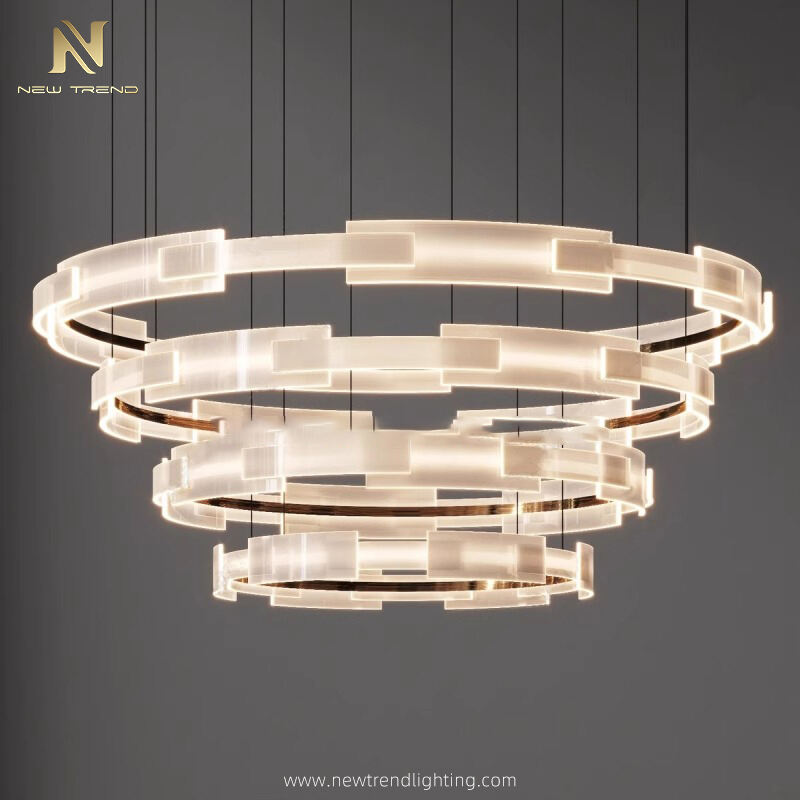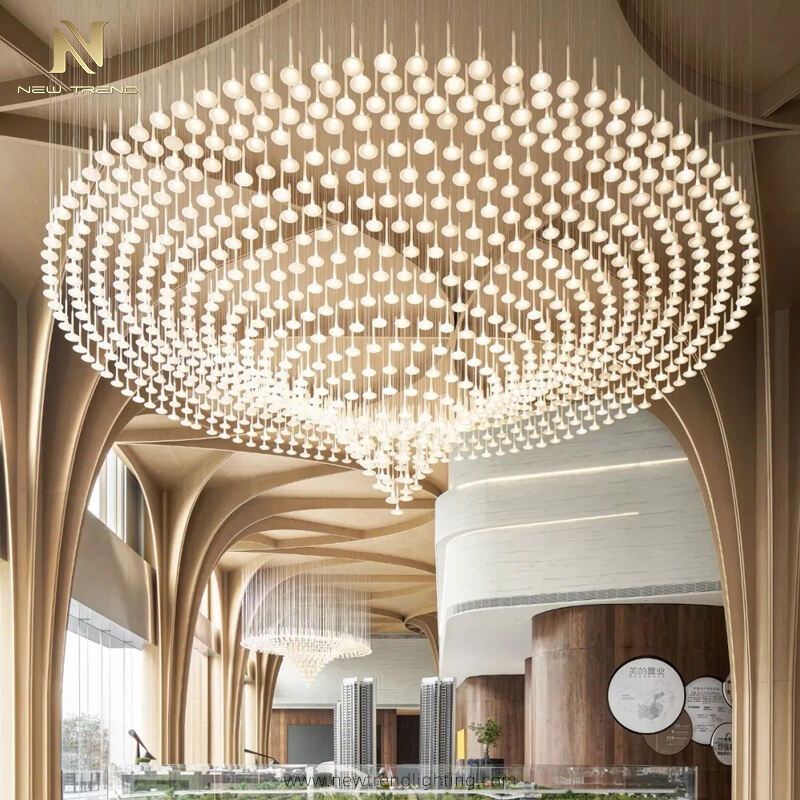How to Choose Bespoke Lighting for Commercial Spaces
Lighting is one of the most powerful tools in commercial design, shaping how people experience and interact with a space. From offices and restaurants to hotels, retail stores, and galleries, lighting influences mood, emphasizes branding, and enhances functionality. While standard fixtures can provide general illumination, they often fail to capture the unique identity of a business. This is where bespoke lighting becomes a vital design choice. By customizing lighting to suit the specific character of a commercial space, designers and owners can create environments that are not only practical but also memorable and brand-defining.
Choosing bespoke lighting for commercial spaces requires a thoughtful process that balances creativity, technical requirements, cost, and long-term sustainability. Unlike residential settings where personal taste may dominate, commercial spaces must cater to customer experience, brand communication, and operational efficiency. This means that the lighting must do more than look beautiful; it must support the daily functions of the space while also making a lasting impression.
Understanding the Role of Bespoke Lighting in Commercial Design
Bespoke lighting refers to customized lighting solutions designed specifically for a given project. Instead of relying on mass-produced fixtures, bespoke lighting allows architects, interior designers, and business owners to create pieces that reflect brand identity, suit architectural proportions, and meet technical requirements. In commercial spaces, this can mean anything from a sculptural chandelier in a hotel lobby to tailored track lighting in an art gallery or subtle integrated lighting in a modern retail store.
The role of lighting in commercial spaces extends beyond functionality. It guides visitors through the environment, highlights key features, and establishes a tone that reinforces brand values. In a retail store, for instance, bespoke lighting can draw attention to merchandise displays while maintaining an inviting overall atmosphere. In restaurants, it can define intimacy at dining tables while creating a vibrant and energetic bar area. By tailoring the design, placement, and effect, bespoke lighting transforms ordinary interiors into immersive experiences.
Factors to Consider When Choosing Bespoke Lighting
One of the first considerations is the purpose of the space. A hotel lobby requires lighting that creates a sense of grandeur and welcome, while a co-working office needs illumination that supports productivity and reduces eye strain. Bespoke lighting must align with these goals. Designers often begin by analyzing the activities that will take place in the space, the types of users who will frequent it, and the emotions the business wants to evoke.
The scale of the space is equally critical. Large atriums or open-plan commercial areas often demand bold lighting installations that act as focal points, while smaller boutique shops or restaurants may benefit from more intimate and carefully scaled pieces. The advantage of bespoke lighting is that it can be precisely tailored to the dimensions of the environment, ensuring that fixtures neither overwhelm nor appear insignificant.
Material selection also plays a central role. Commercial spaces often endure heavy use, so lighting fixtures must be durable as well as aesthetically pleasing. Metals, glass, and engineered composites are popular choices, but they can be customized with textures and finishes that align with the brand’s identity. For instance, a luxury retail store might use polished brass and crystal elements in its bespoke lighting, while a modern tech office may prefer minimalist fixtures in matte black or aluminum.
Energy efficiency and sustainability are increasingly important in commercial lighting design. Bespoke lighting can integrate advanced LED technology, dimming systems, and even smart controls that adapt to occupancy or natural light conditions. Not only does this reduce operational costs, but it also aligns the business with environmentally responsible practices that appeal to eco-conscious customers.
Matching Bespoke Lighting to Brand Identity
Every commercial space tells a story about the brand it represents. Bespoke lighting provides a unique opportunity to reinforce this narrative. In a luxury hotel, a custom chandelier in the lobby may symbolize elegance and exclusivity, while in a modern fitness center, bold linear fixtures may express energy and dynamism. In retail environments, lighting can be tailored to enhance the colors, textures, and quality of merchandise, ensuring that customers see products at their best.
Brand consistency is key. The lighting must harmonize with other design elements such as color schemes, furniture, and architectural features. A mismatch between lighting and brand identity can confuse customers and dilute the overall impact of the design. Bespoke lighting ensures that every fixture, from statement pieces to subtle accents, aligns with the image the business wants to project.

Functionality and User Experience
While aesthetics are vital, bespoke lighting must also deliver functionality. In office environments, poorly designed lighting can lead to fatigue and reduced productivity. In retail stores, inadequate lighting can make merchandise less appealing. In hospitality settings, overly bright or poorly positioned fixtures can compromise comfort.
Bespoke solutions allow for precise control over lighting effects. Task lighting, ambient lighting, and accent lighting can all be integrated into a cohesive system tailored to the space. For example, in a restaurant, bespoke pendant lights may provide warm, intimate illumination over tables, while concealed LED strips highlight architectural details. In an art gallery, adjustable spotlights can be customized to show artworks in the best possible light without creating glare. The ability to fine-tune these details ensures that the space is both beautiful and functional.
Integration with Technology
Modern commercial spaces often rely on advanced technology for operations, energy management, and customer engagement. Bespoke lighting can integrate seamlessly with these systems. Smart controls allow lighting to adapt automatically to occupancy, time of day, or events. Dynamic color-changing systems can create different moods, supporting marketing campaigns or special events. In entertainment venues, bespoke lighting can even be synchronized with audio systems to create immersive experiences.
By designing fixtures specifically for the space, technology integration becomes smoother and more effective. Whether through sensors, wireless controls, or building management systems, bespoke lighting helps businesses stay future-ready and adaptable.
Case Studies and Examples
Consider a luxury hotel where the lobby chandelier is custom designed to reflect local culture, using materials sourced from the region. The result is not only a functional light source but also a storytelling element that sets the tone for the guest experience. In a retail flagship store, bespoke lighting designed to highlight window displays can draw customers from the street, directly influencing sales. In co-working offices, modular bespoke lighting allows spaces to be reconfigured easily without compromising light quality, enhancing flexibility. Each case illustrates how custom solutions adapt to commercial needs while reinforcing brand and function.
Conclusion
Choosing bespoke lighting for commercial spaces is both an artistic and strategic decision. It involves balancing brand identity, functionality, user experience, sustainability, and technology integration. Unlike standard fixtures, bespoke solutions offer precision, uniqueness, and adaptability, ensuring that the lighting not only illuminates but also defines the character of the space. For businesses, this investment translates into stronger branding, better customer experiences, and improved operational efficiency. A well-designed bespoke lighting system becomes more than just a source of light; it becomes a central component of the commercial identity and a driver of long-term success.
FAQ
What is bespoke lighting in commercial design?
It refers to custom-designed lighting solutions created specifically for a commercial project, reflecting its architecture, branding, and functional needs.
Why is bespoke lighting important for commercial spaces?
Because it enhances brand identity, improves customer experiences, and provides tailored functionality that mass-produced fixtures cannot achieve.
How does bespoke lighting affect brand image?
By using materials, shapes, and scales that align with brand values, it reinforces the identity of the business and creates memorable impressions.
Is bespoke lighting more expensive than standard fixtures?
Yes, but it provides long-term value through brand reinforcement, operational efficiency, and customer satisfaction.
Can bespoke lighting be energy-efficient?
Absolutely. Modern bespoke designs often integrate LED technology, dimming systems, and smart controls for sustainability and cost savings.
How does bespoke lighting improve user experience?
It provides the right balance of ambient, task, and accent lighting tailored to the activities and comfort of the users.
Can bespoke lighting integrate with smart building systems?
Yes, it can be designed to work with sensors, automation, and building management systems for efficiency and adaptability.
What materials are best for bespoke commercial lighting?
Durable and brand-appropriate materials such as metals, glass, composites, or natural finishes depending on the identity of the space.
Does bespoke lighting work in small commercial spaces?
Yes, it can be scaled to fit smaller environments, ensuring proportionality and avoiding visual clutter.
What types of commercial spaces benefit most from bespoke lighting?
Hotels, restaurants, retail stores, galleries, offices, and entertainment venues all gain from lighting solutions tailored to their unique functions and brand identity.
Table of Contents
- Understanding the Role of Bespoke Lighting in Commercial Design
- Factors to Consider When Choosing Bespoke Lighting
- Matching Bespoke Lighting to Brand Identity
- Functionality and User Experience
- Integration with Technology
- Case Studies and Examples
- Conclusion
-
FAQ
- What is bespoke lighting in commercial design?
- Why is bespoke lighting important for commercial spaces?
- How does bespoke lighting affect brand image?
- Is bespoke lighting more expensive than standard fixtures?
- Can bespoke lighting be energy-efficient?
- How does bespoke lighting improve user experience?
- Can bespoke lighting integrate with smart building systems?
- What materials are best for bespoke commercial lighting?
- Does bespoke lighting work in small commercial spaces?
- What types of commercial spaces benefit most from bespoke lighting?



